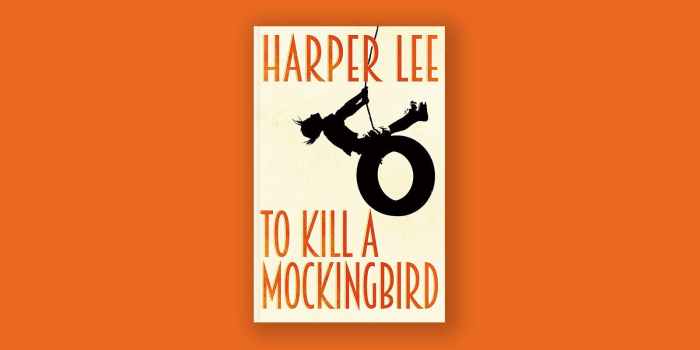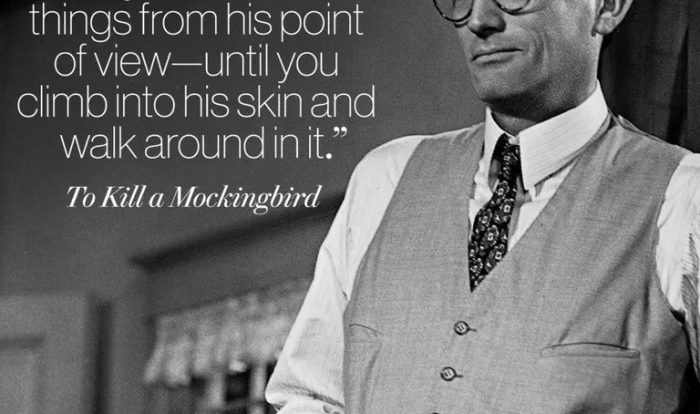To kill a mockingbird discussion questions – Embarking on a literary expedition into Harper Lee’s timeless masterpiece, “To Kill a Mockingbird,” this discussion guide invites you to delve into the novel’s profound themes, intricate characters, and historical significance. As we embark on this journey, let us uncover the complexities of this beloved work and engage in thought-provoking conversations that illuminate its enduring impact.
Themes

Themes present in “To Kill a Mockingbird”
- Racial injustice:The novel exposes the deep-seated racism and prejudice in the American South during the Jim Crow era, highlighting the devastating impact it has on individuals and communities.
- Moral courage:The novel explores the importance of standing up for what is right, even when it is difficult or unpopular. Atticus Finch serves as a moral compass, demonstrating the courage to defend the innocent and challenge injustice.
- Childhood innocence:The novel portrays the loss of childhood innocence as Scout and Jem witness the harsh realities of the adult world. Their experiences teach them about the complexities of human nature and the importance of empathy.
Characters
Atticus Finch: A Moral Compass
- Atticus is a lawyer who defends Tom Robinson, a black man falsely accused of raping a white woman. His unwavering commitment to justice and his belief in the inherent dignity of all people make him a moral compass for the community.
- He teaches his children the importance of empathy, compassion, and courage, guiding them through the challenges of growing up in a racially divided society.
Scout and Jem: Growing Through Innocence
- Scout and Jem are the novel’s protagonists, two young children who witness the events of the story from their unique perspectives.
- Scout is a tomboyish and inquisitive girl, while Jem is more reserved and thoughtful. Together, they learn about the complexities of human nature and the importance of standing up for what is right.
Setting, To kill a mockingbird discussion questions
Maycomb, Alabama: A Microcosm of American Society
- Maycomb is a small town in Alabama during the Jim Crow era. It is a microcosm of American society, reflecting the racial tensions and social injustices of the time.
- The setting influences the events and characters in the novel, shaping their experiences and perspectives on race and morality.
Symbolism
Symbolism in “To Kill a Mockingbird”
- The mockingbird:The mockingbird is a symbol of innocence and harmlessness. Killing a mockingbird represents the destruction of innocence and the violation of justice.
- The mad dog:The mad dog is a symbol of the danger and violence that lurks beneath the surface of society. It represents the threat of mob mentality and the potential for evil within individuals.
- The Boo Radley house:The Boo Radley house is a symbol of mystery and fear. It represents the unknown and the prejudice that can lead to social isolation.
Historical Context
The Jim Crow Era: A Legacy of Racism
- The Jim Crow era was a period of racial segregation and discrimination in the United States that lasted from the late 19th century to the mid-20th century.
- The novel reflects the social and racial tensions of the time, highlighting the devastating impact of racism on individuals and communities.
Literary Techniques
Foreshadowing and Irony in “To Kill a Mockingbird”
- Foreshadowing:The novel uses foreshadowing to hint at future events, creating suspense and building tension.
- Irony:The novel employs irony to highlight the gap between expectations and reality, adding depth and complexity to the story.
FAQ Compilation: To Kill A Mockingbird Discussion Questions
What is the significance of the mockingbird in the novel?
The mockingbird symbolizes innocence, vulnerability, and the destruction of beauty and innocence.
How does the setting of Maycomb, Alabama, influence the story?
The setting of Maycomb during the Jim Crow era shapes the characters’ experiences, prejudices, and the social dynamics that drive the plot.
What is the role of Atticus Finch as a moral compass?
Atticus Finch serves as a moral compass for the characters and the readers, representing integrity, justice, and compassion in the face of adversity.
